Driven by big data, intelligence and fully connected technologies, the era of Internet of everything and pan-media is approaching, and global news communication education is facing major reforms and adjustments.
This is a common problem faced by the global journalism education community. It needs to bring together the wisdom, strength and courage of the academic community to give possible answers.
To this end, on October 13, 2018, “International Journalism and Communication Deans Conference (2018) and 2018 China Communication Forum” was held at Renmin University of China, which was jointly launched by China Higher Education Society Journalism and Communication Professional Committee, School of Journalism and Communication of Renmin University of China and Communication Research Association of the Chinese Association for Journalism and Mass Communication.
Liu Wei, President and Deputy Party Committee Secretary of Renmin University of China, reported that upon entering the beginning of the new century, the news communication education community has made necessary adjustments and innovations in terms of concepts, goals, content, and paths, and has achieved rich experience and remarkable achievements. However, micro, detailed and phased repairs and optimizations are difficult to adapt and lead the overall transformation of the communication and media industry. Education needs to be strategically and systematically reconstructed.
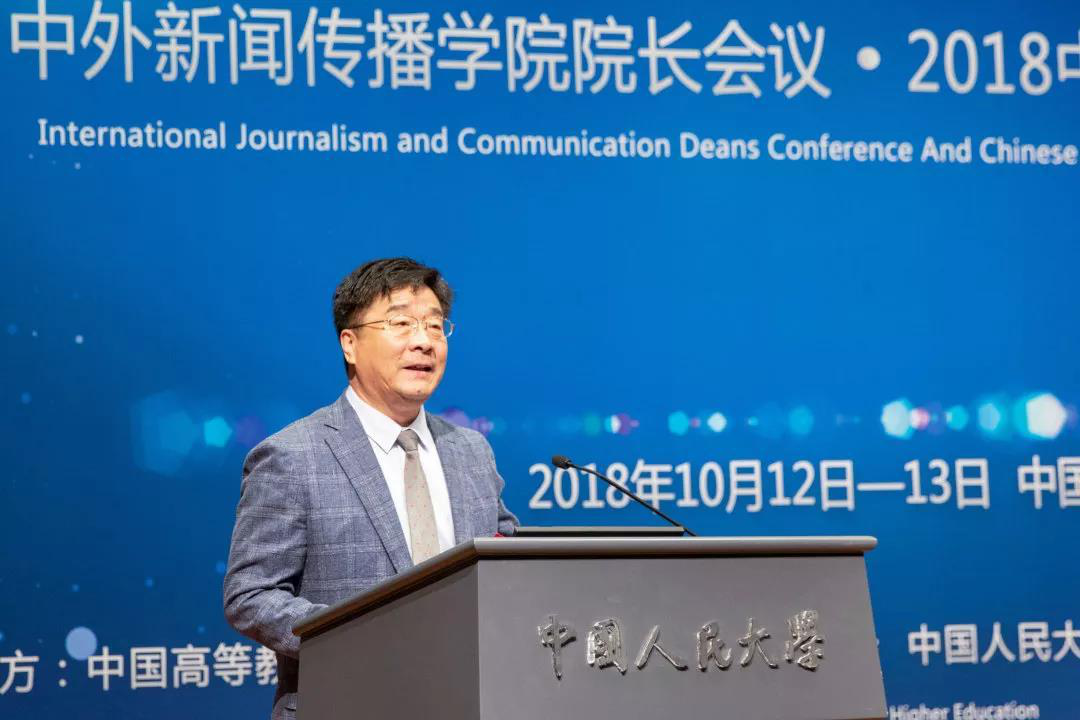
【Welcome Speech】
Liu Wei, President and Deputy Party Committee Secretary of Renmin University of China
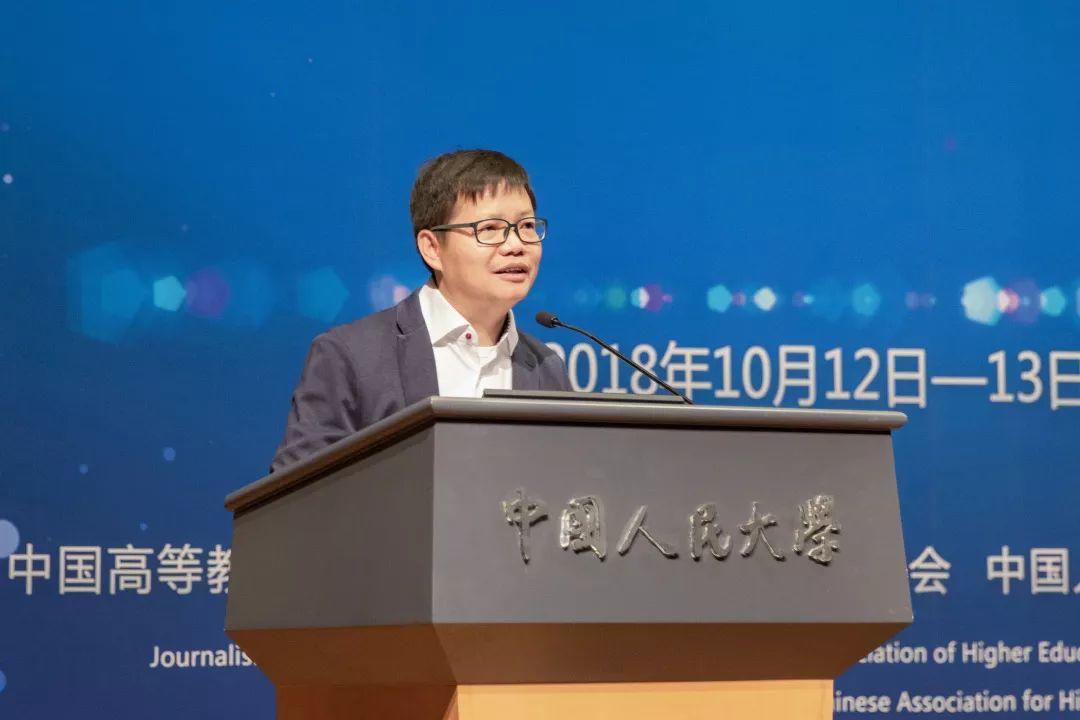
【Chair】
Zhou Yong, Professor, Party Committee Secretary and Associate Dean of School of Journalism and Communication, Renmin University of China
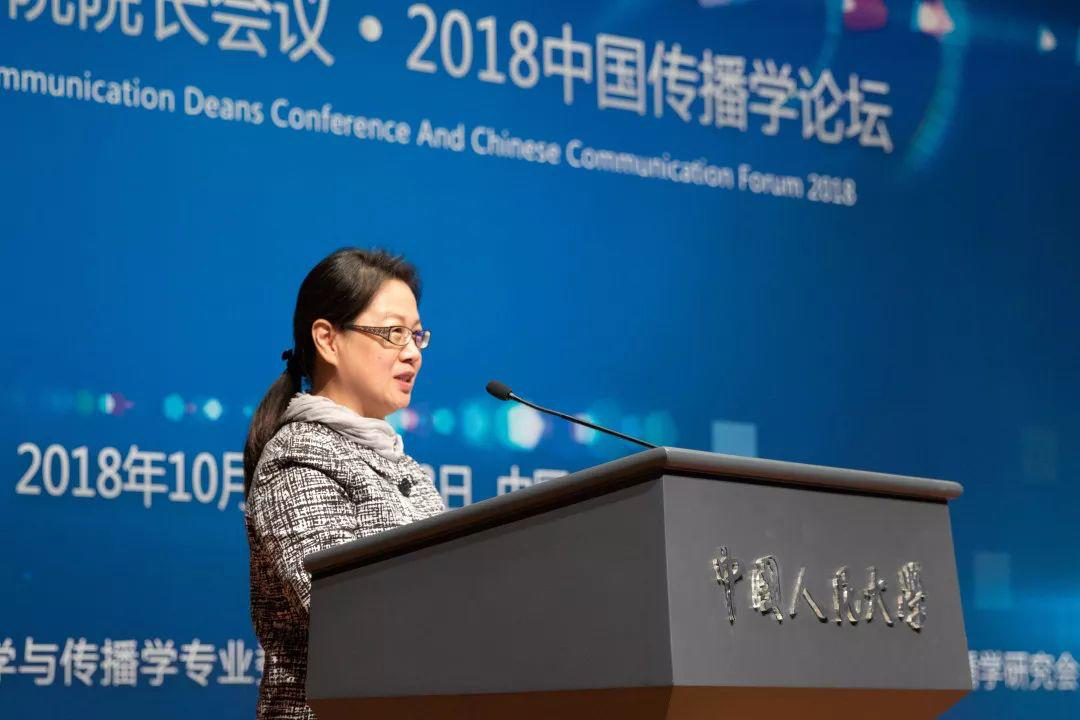
【Chair】
Wang Runze, Professor and Associate Dean of School of Journalism and Communication, Renmin University of China
Yang Guobin, associate dean of the Annenberg School of Communication at the University of Pennsylvania, noted that the current journalism system and communication education do not do enough to enhance humanistic values and human diversity. In his opinion, communication can be regarded as a kind of translation, with different points of view or the intention of pursuing difference. Translators will attach importance to the value of difference and accept different viewpoints. If our purpose is to better understand the world and other people, our research purpose will have more social practical significance for the public, rather than merely pursuing an academic achievement for ourselves.
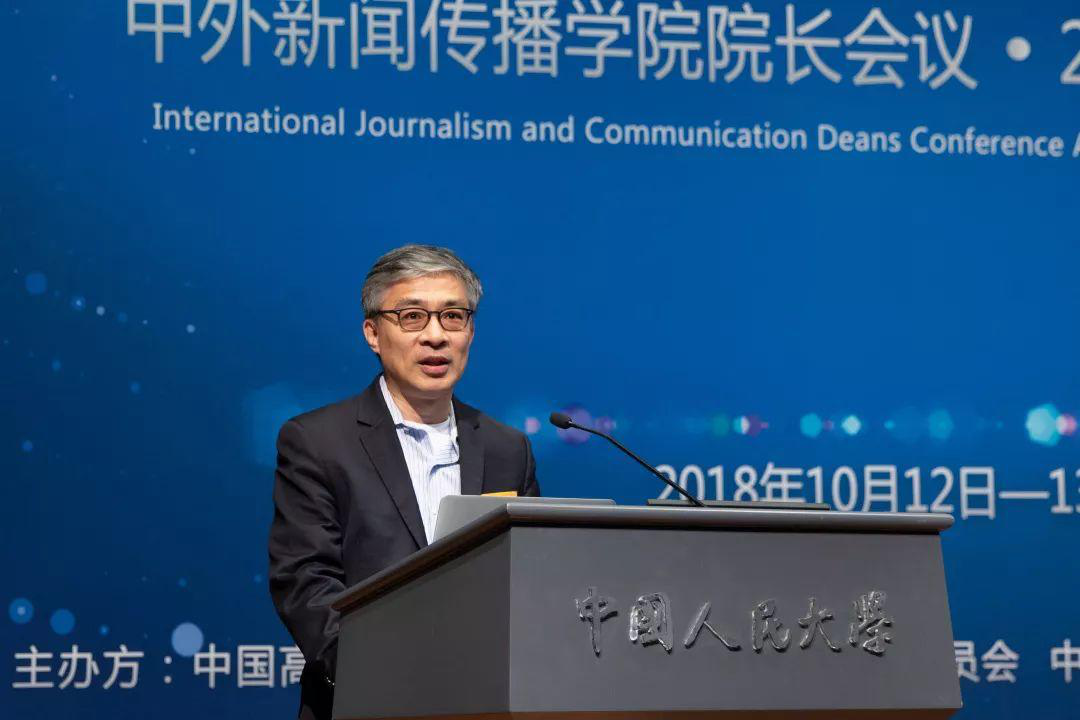
【Communication as Translation and Some Practical Implications for Knowledge Production】
Yang Guobin, Professor and Associate Dean for Graduate Studies, Annenberg School for Communication
Professor Maria Ryan-Rios, associate dean of the School of Journalism and Mass Communication at the University of Georgia, described her school's strategy. Given the cost and speed of technology change, the school has invested heavily in student training, working with industry partners to help students become proficient in the latest technology, focusing on best practices and practices. For example, students learn about the technology of VR to make movies through the course, so that they know which stories are best told through this technology, and how to better share these stories.
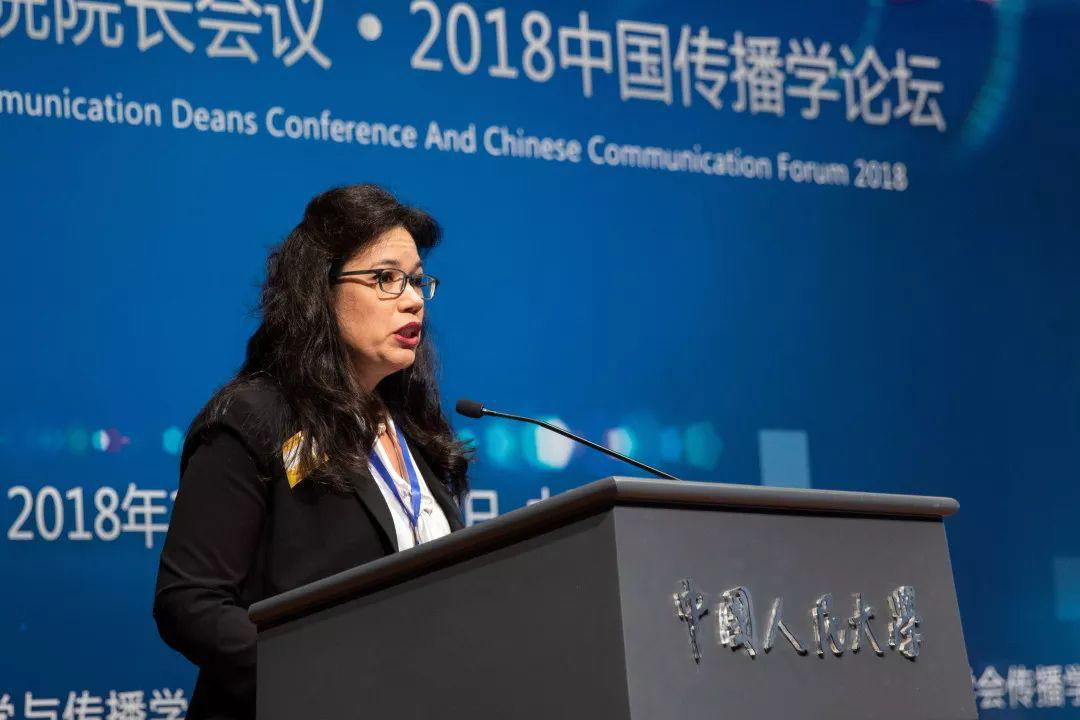
【Technology and the Curriculum for the Future: Managing Constant Change】
María E. Len-Ríos, Professor of Public Relations, Associate Dean for Academic Affairs, Grady College of Journalism and Mass Communication, University of Georgia
Xiong Chengyu, Chair of Communication Research Association of the Chinese Association for Journalism and Mass Communication, Professor, School of Journalism and Communication, Tsinghua University, reviewed the development course of communication from 1997 to now, and expounds the frontier and expansion of communication theory research from three aspects: the deepening of the concept of communication theory, the diversification of approaches, and the expansion of research fields.
Xiong believes there are four perspectives for communication methodology innovation in the era of big data: First, many classic methods are irreplaceable; Second, the reform, integration and update of big data on traditional methods; Third, the development of computing and communication at home and abroad; The fourth is the paradigm innovation of cognitive-communication. He also identified 10 current academic frontiers in communication field.
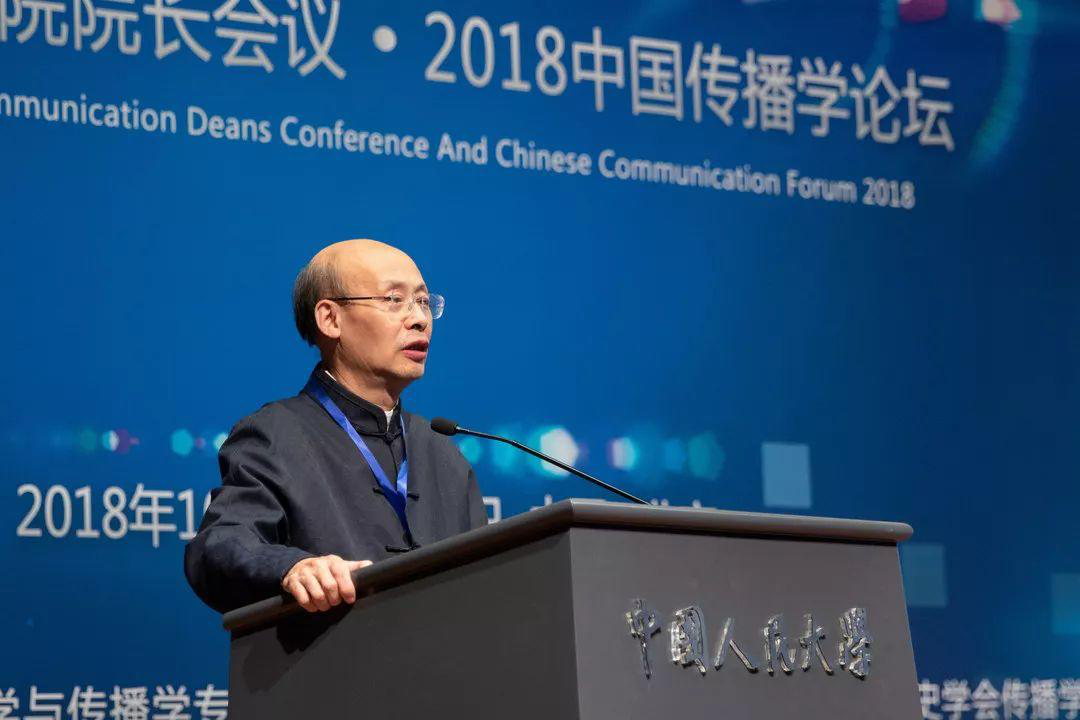
【Positioning and Extension: the 20 Year History of Chinese Communication Discipline】
Xiong Chengyu, Chair of Communication Research Association of the Chinese Association for Journalism and Mass Communication, Professor, School of Journalism and Communication, Tsinghua
University
Zhang Kun, Leading Scholar and Professor, School of journalism and Information Communication, Huazhong University of Science and Technology, said that the journalism education in Huazhong University of Science and Technology adheres to the importance of subject in the process of running school, has an independent disciplinary system, and maintains a benign interactive relationship with the industry. It is an important tradition for a college to be governed by professors. In college governance, the dean or dean, who is also a professor, bears a particularly important responsibility for the development of the college. He also mentioned that each teacher has an independent studio, and the school adheres to the spirit of competition.
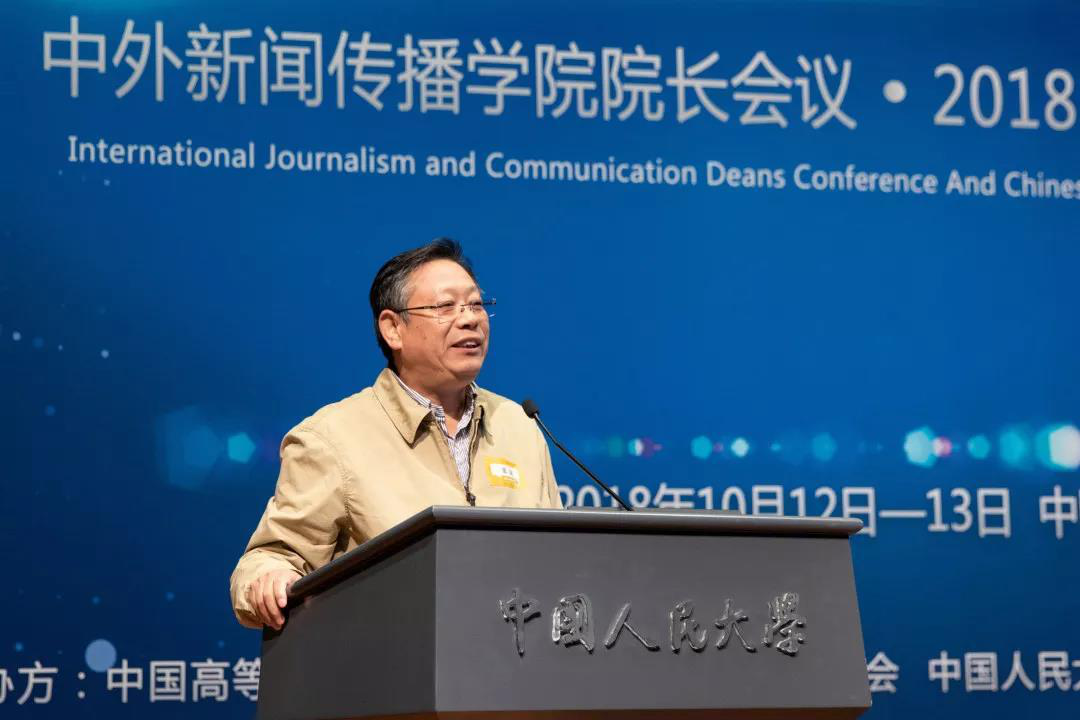
【Understanding Chinese Journalism and Communication Education: the Mode of Huazhong University of Science and Technology】
Zhang Kun, Leading Scholar and Professor, School of journalism and Information Communication, Huazhong University of Science and Technology
Professor Zhang Taofu, executive dean of The School of Journalism of Fudan University, said that the challenges of journalism and communication come from three aspects: knowledge system, industry practice and education. As for the educational direction of journalism and communication, Zhang said it needs to be redrawn on the basis of value level, knowledge level, including talent ability.

【Reshaping Journalism and Communication Professional Framework】
Zhang Taofu, Professor and Dean of Journalism School, Fudan University
Qiangyuexin, Professor Qiangyuexin, dean of School of Journalism and Communication, Wuhan University, raised three questions on practical teaching of journalism and Communication. First, practice teaching or experiment teaching? With the development of technology, what used to be practical teaching has now become more experimental. Second, standardized or innovated? At present, the standardization of experimental teaching is not enough. It is necessary to innovate on the basis of standardization. Third, commonness or individuality? He believes that commonality is needed, but personality is especially needed, which is related to the school's personality, subject characteristics, and even its industry and region.
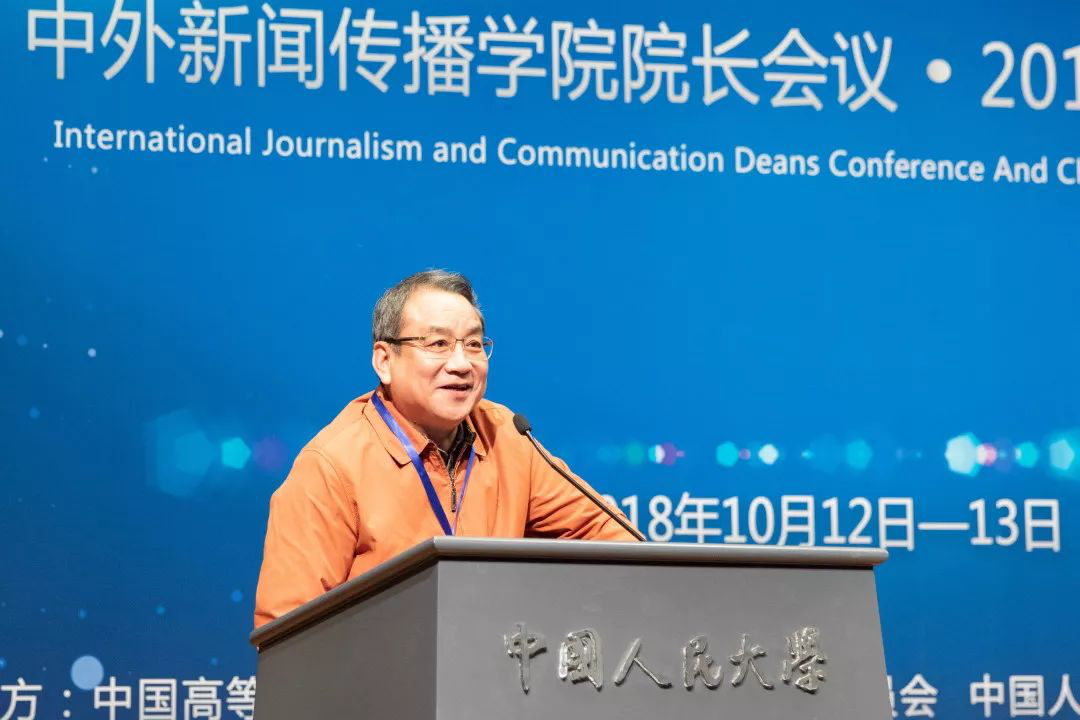
【Reflections on Teaching Practices】
Qiang Yuexin, Professor and Dean of School of Journalism and Communication, Wuhan University
Tom Reichert, professor and Dean of College of Information and Communications, University of South Carolina, shared the university's experience in intercollegiate and interdisciplinary collaboration.The University of South Carolina's inclusion of libraries with information science and mass communication and journalism education. That allows the two schools to provide better data science information, and provide stronger support for students in the library and information science.
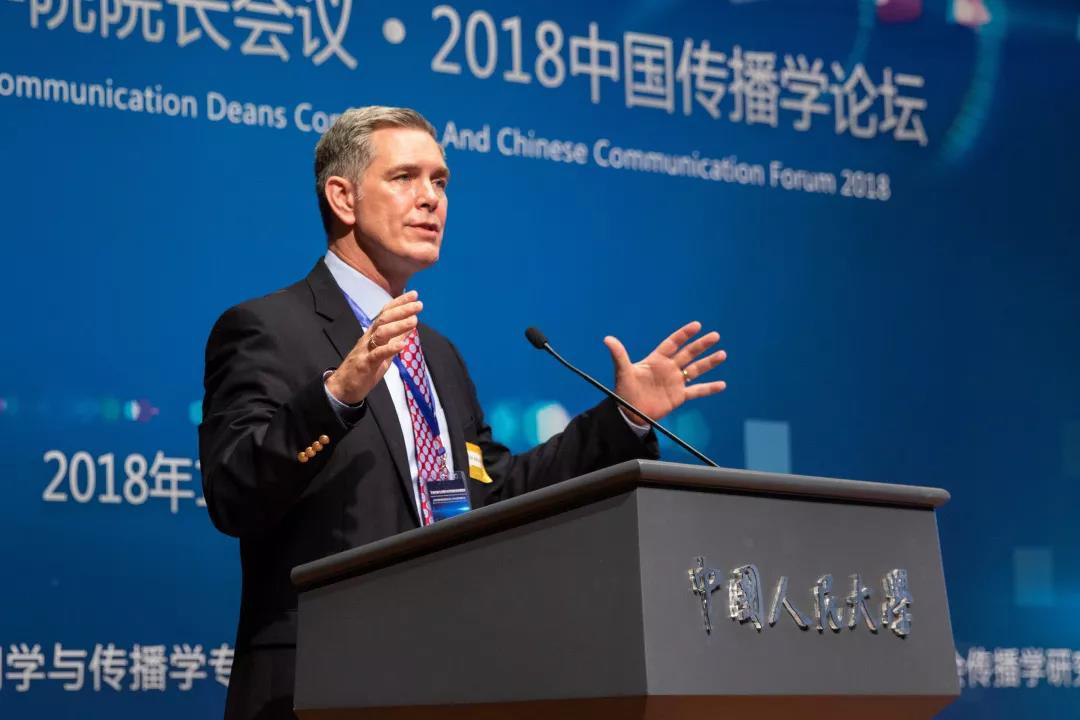
【Responding to the Impact of Data and Technology on Journalism and Mass Communication Education】
Tom Reichert, Professor and Dean of College of Information and Communications, University of South Carolina
Jiang Xiaoli, Professor and Dean of Penguin New Media School, Sichuan University, said that journalism and communication education should be a collaborative communication system with exchange of resources, forming advantages and characteristics through the combination of course modules, to construct a new model of news communication education which is full of tension, inclusive and open.
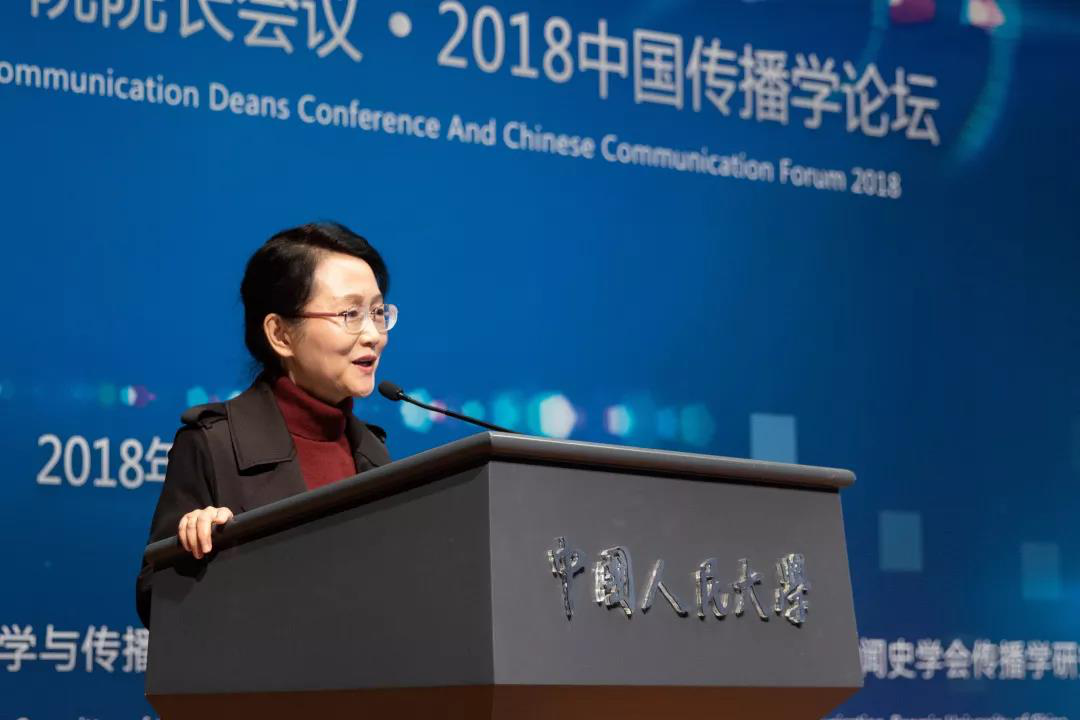
【Knowledge Updating and Fusion of Horizons: Reflections on Journalism and Communication Education in the Era of Internet of Everything】
Jiang Xiaoli, Professor and Dean of Penguin New Media School, Sichuan University
He Suliu, Professor and Associate Dean of Televison School, Communication University of China, said that the current format of media in China brings a lot of ideas to media practice and research, but causes a lot of confusion and difficulties in education since the perspectives of research and teaching are very different.
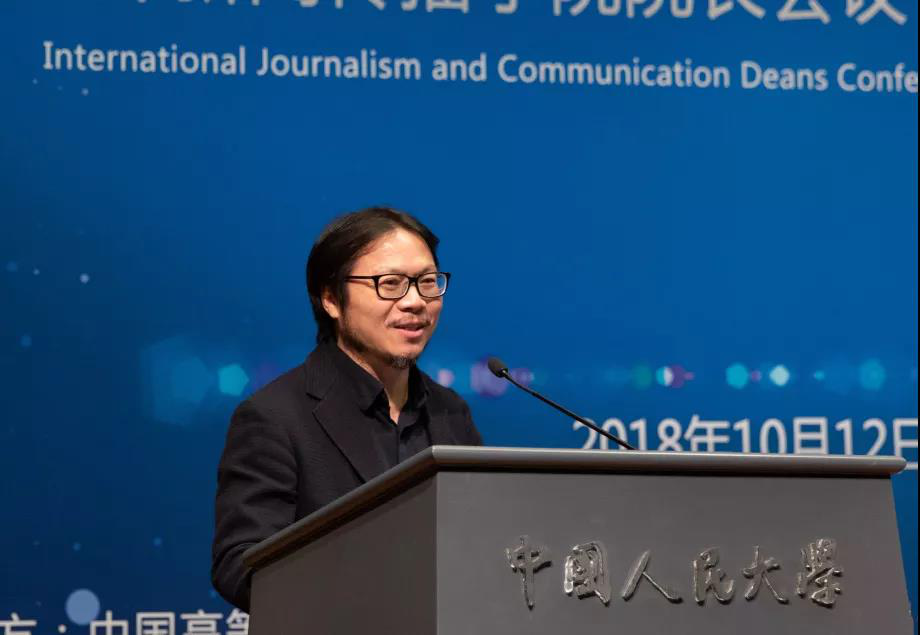
【 Rebuidling the Knowledge Genealogy and Innovating the Paradigm of Journalism and Communication Education】
He Suliu, Professor and Associate Dean of Televison School, Communication University of China
Hu Baijing, Professor and Executive Dean of School of Journalism and Communication, Renmin University of China, reported that today’s technological change has highlighted the importance of the legitimacy and subjectivity of journalism and communication. Journalism and communication education should be innovated from two perspectives: internal reconstruction and external expansion. On the one hand, the barrier among different majors should be removed. On the other hand, students should be encouraged to cross the border of disciplines and cultures. In addition, the innovation should focus on improving students’ mind and aesthetic consciousness. School of Journalism and Communication of Renmin University of China has launched a number of action plans on education, and the preparation for the undergraduate-oriented international communication project and the graduate-oriented strategic communication project is underway.
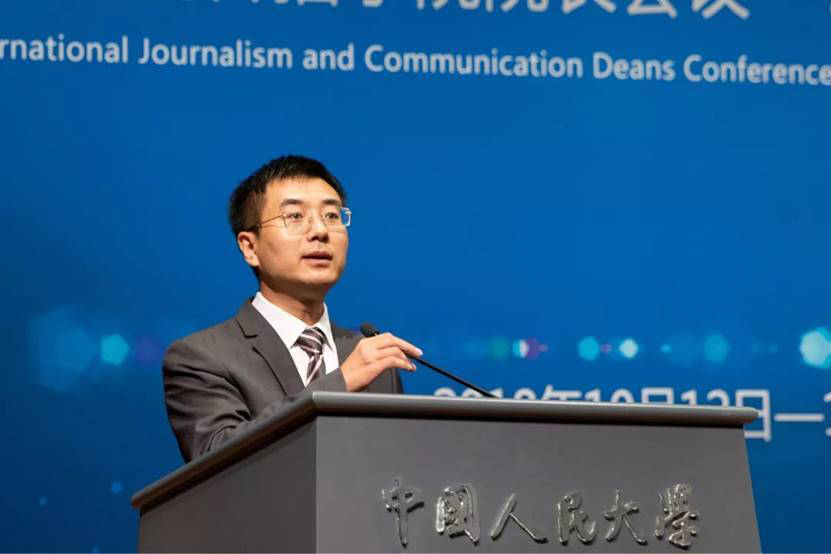
【Opening Speech】
Hu Baijing, Professor and Executive Dean of School of Journalism and Communication,
Renmin University of China
Zheng Baowei, Professor and Dean of School of Journalism and Communication, Guangxi University, noted several problems of journalism education in China’s ethnic minority areas, including late start, lack of resources and motivation, and unbalanced development. He also made three suggestions on these problems. First, schools of journalism in ethnic minority areas should rely on themselves and lift their own spirits, rather than wait for other’s help. Second, schools of journalism in ethnic minority areas should pursue intensive development by positioning themselves, integrating their own resources, and capitalizing on their advantages and characteristics. For example, Guangxi University has witnessed the establishment of ASEAN research center and climate and health research center. Third, schools of journalism in ethnic minority areas should strive for external resources and strengthen cooperation with other departments.
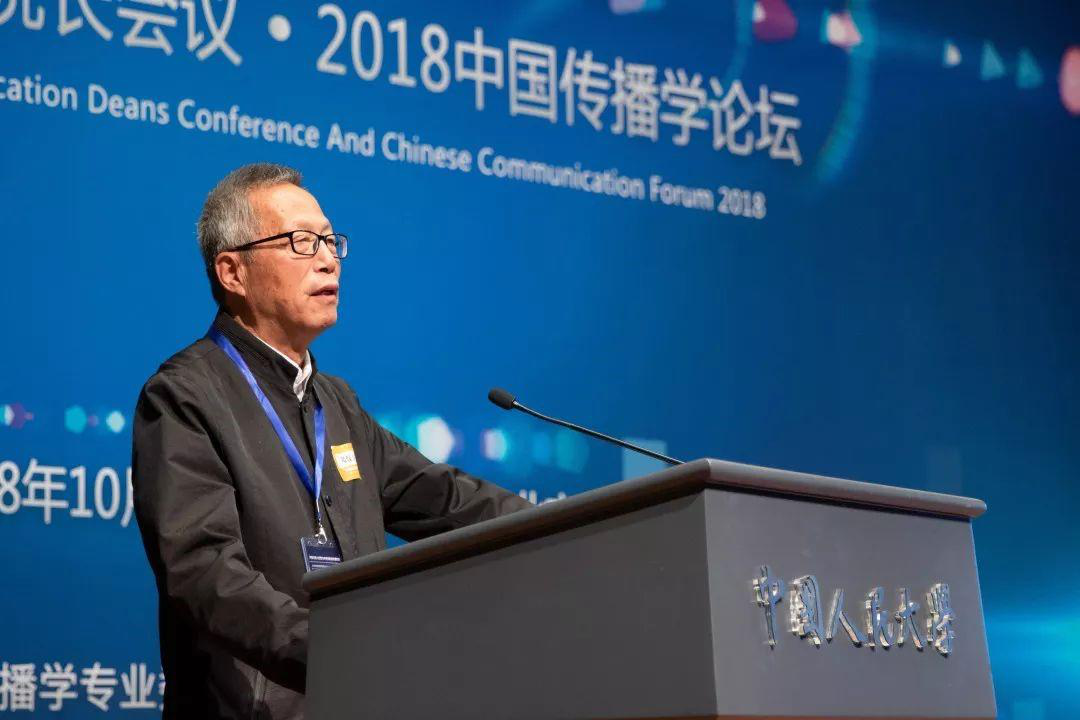
【Observation of and Reflections on Journalism Education in China's Ethnic Minority Areas】
Zheng Baowei, Professor and Dean of School of Journalism and Communication, Guangxi University
Huang Yu, Professor and Dean of School of Communication, Hong Kong Baptist University, analyzed the digital transformation of Hong Kong media from four perspectives: audience, content production, business operation, and technical platform, and introduced the development of journalism education influenced by the digital trends in Hong Kong’s universities. According to the research, traditional media in Hong Kong have been experiencing a slow progress in terms of digital transformation, and many media organizations lack a long-term strategy for the development of digital media; Hong Kong’s media mainly take a conservative attitude towards new technology; most media are still relying on traditional advertisements; Hong Kong’s universities can assist media in digital transformation. At the same time, schools of journalism and communication in Hong Kong can also strengthen their ties with the media industry, reflect the industry’s needs in the curriculum, conduct researches on challenges faced by the industry, and provide solutions for the industry.
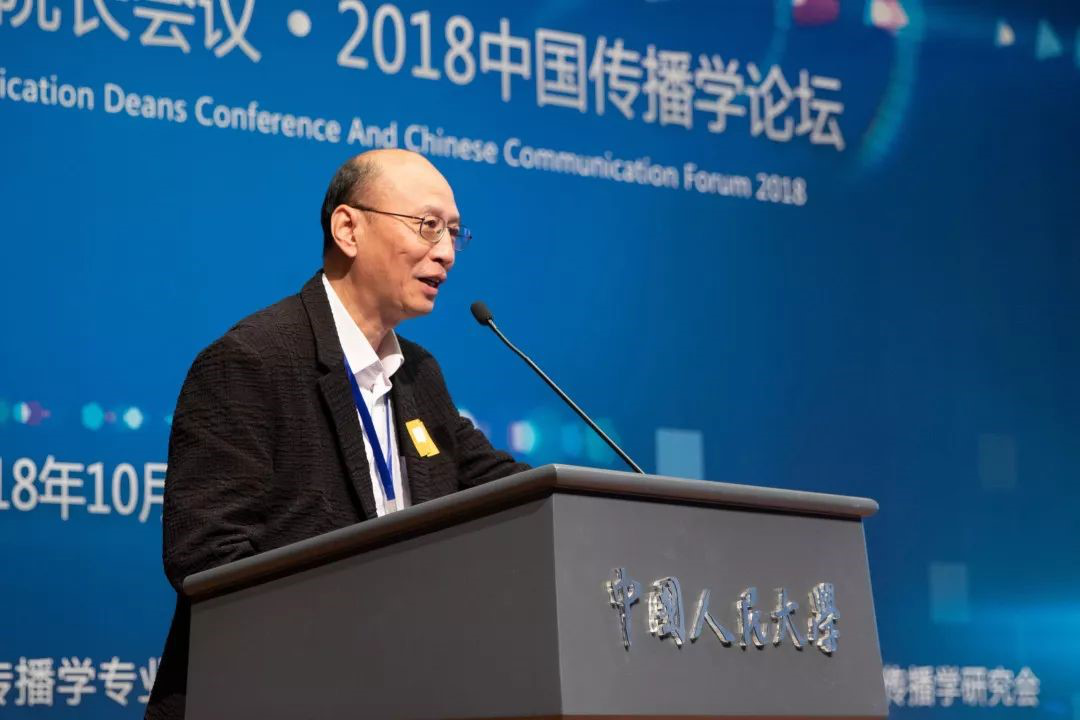
【Digital Media Trends in Hong Kong and the Impact on Journalism Education】
Huang Yu, Professor and Dean of School of Communication, Hong Kong Baptist University
Laramie Taylor, Associate Professor and Chair of Department of Communication, University of California, Davis, said that everyone can become a consumer and a producer of the media content at the same time in this age, which highlights the importance of media literacy. In his opinion, there are two important skills for students to improve their media literacy in the age of pan-media. The first one is about the evaluation of the quality of information, and the second one is about data research.
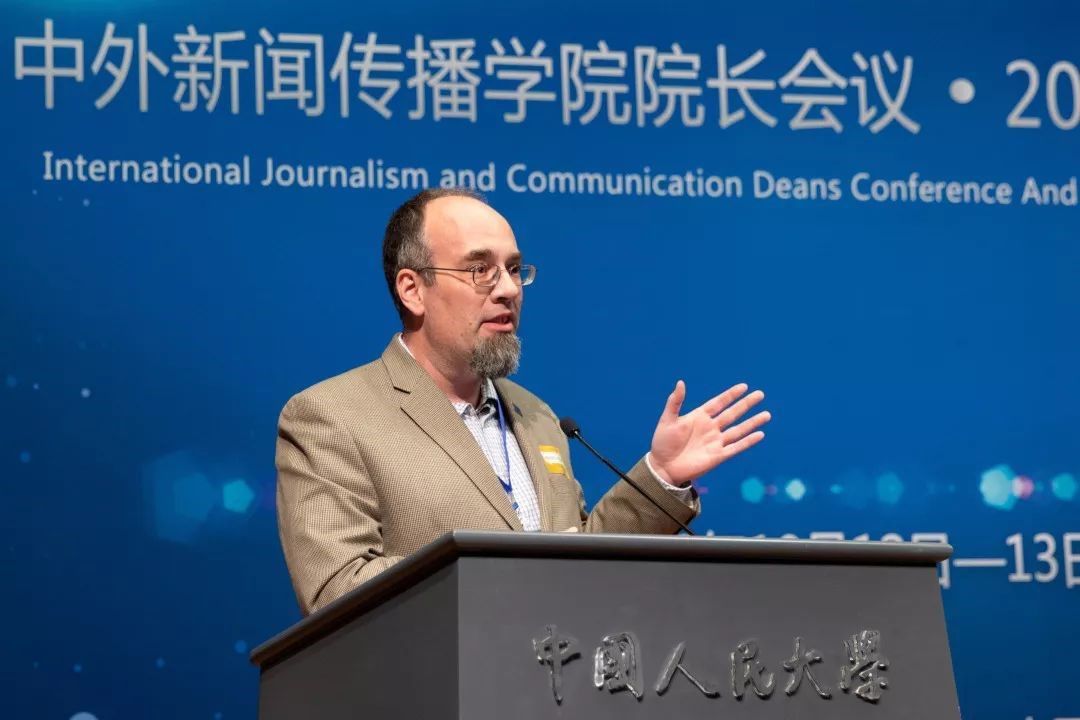
【Shifting toward a Pan-Media Literacy Curriculum】
Laramie Taylor, Associate Professor and Chair of Department of Communication,
University of California, Davis
Wei Lu, Professor and Dean of College of Media and International Culture, Zhejiang University, reported the weaknesses of the internationalization of China’s journalism and communication education from six perspectives: low proportion of international students, outdated courses, limited employment opportunities, shortage of international teachers, lack of international papers, and low-level of international communication. He also proposed seven measures of advancing the internationalization of China’s journalism and communication education: improve the quality and diversity of students; increase the proportion of international teachers and improve their treatment; give students more opportunities to practice in global media and organizations; strengthen higher-level cooperation; increase the number of English courses; strengthen the training of standardized research methods and emphasize historical and global perspectives in researches; improve hardware and software environment.
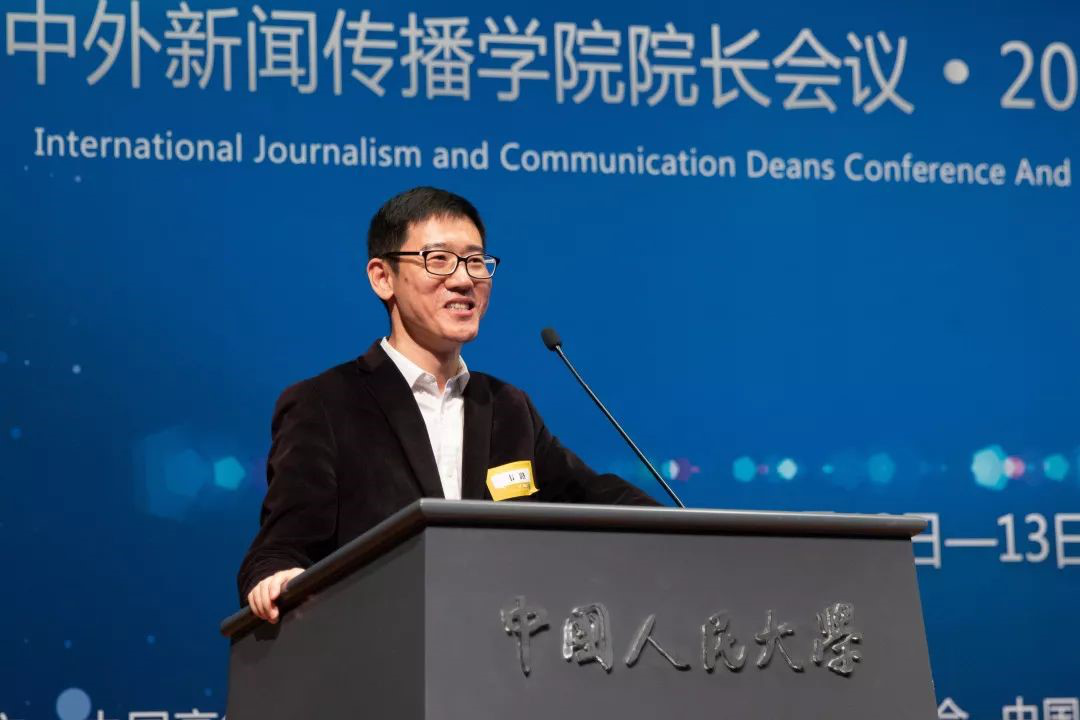
【Reflections on the Internationalisation of Journalism and Communication Education】
Wei Lu, Professor and Dean of College of Media and International Culture, Zhejiang University
Zhi Tingrong, Professor and Executive Dean of School of Journalism and Communication, Jinan University, proposed three questions in his report: To whom does journalism belong? How many kinds of journalism are there in the world? How should Chinese journalism interact with the world? In his view, the journalism constructed by the academies can reflect the practice of the press to some extent, but it cannot represent the consensus of society, and journalism may not reflect the judgement, cognition, and values of news and public opinion by a certain society, a certain country, or the human community. There are many kinds of journalism for us to explore across the world besides western journalism and Chinese journalism. We respect the contributions of western journalism to human knowledge, but we object to the exaggeration of its status. The mission of Chinese journalism is not to be applied to the whole world, but to solve China’s own problem.
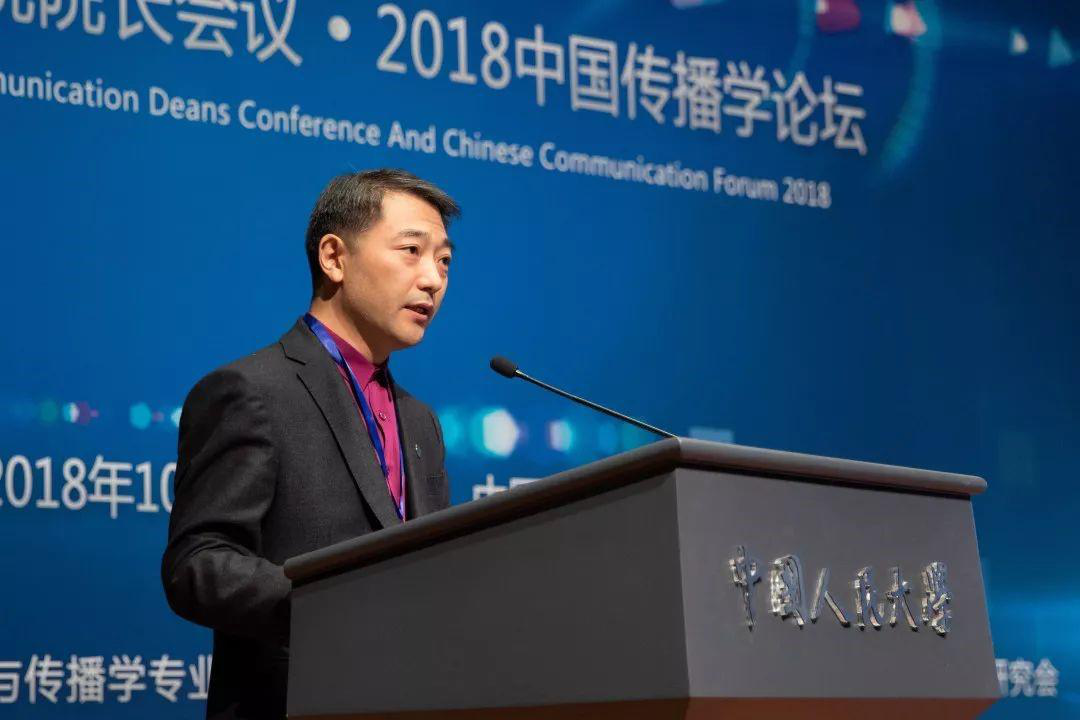
【Supporting Exchanges between Chinese Journalism and the World】
Zhi Tingrong, Professor and Executive Dean of School of Journalism and Communication,
Jinan University
Shi Anbin, Professor and Associate Dean of School of Journalism and Communication, Tsinghua University noted that the past international communication was in fact the communication between two countries, and was dominated by British and American media, but now the emergence of media from other countries has changed the situation. For example, media from Russia and Arabian countries have played an important role in international communication, and China is also leading the neo-globalization. In the era of neo-globalization characterized by communication, the reconstruction of journalism and communication education is needed to further innovation and strategic communication. We should de-westernize the mode of journalism and communication education, and take the opportunity of Belt and Road Initiative to reconstruct a different education system along with other countries. We should cultivate students with global vision and the ability of intercultural communication through our journalism and communication education.
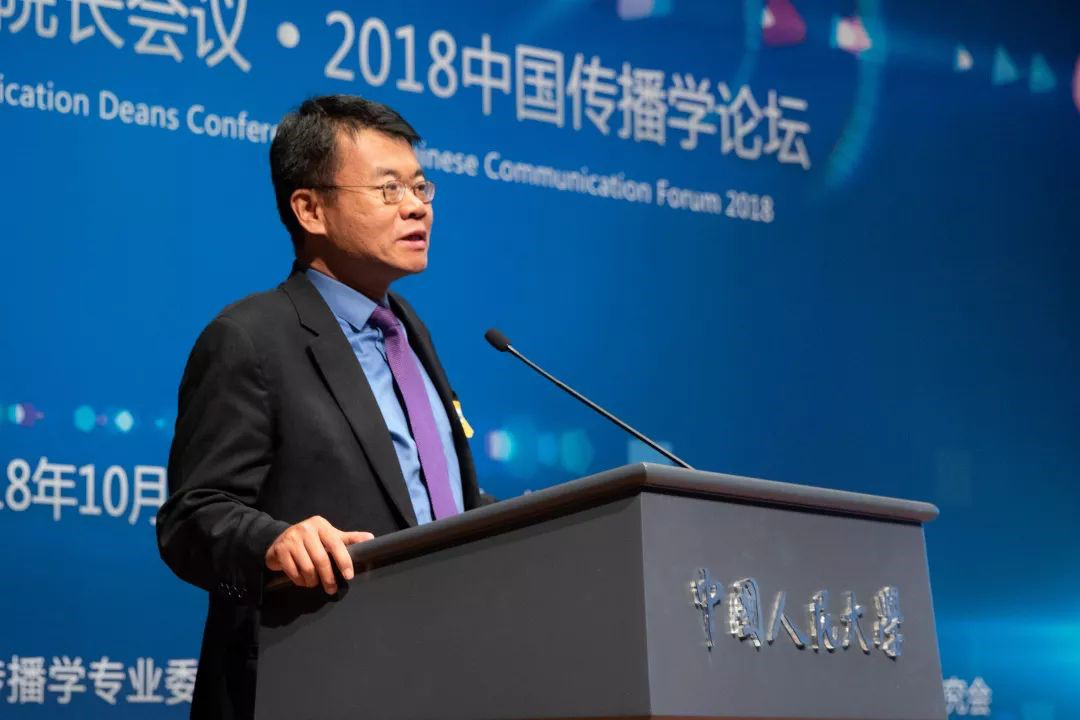
【Reorienting Journalism and Communication Education in the Era of Neo-Globalization】
Shi Anbin, Professor and Associate Dean of School of Journalism and Communication,
Tsinghua University
Lim Sun Sun, Professor and Head of Humanities, Arts and Social Sciences, Singapore University of Technology and Design, reported that professionals of journalism and communication must understand multi-disciplinary knowledge, such as economics, phycology, sociology, computer science, etc. Through multi-disciplinary research and education, we can improve students’ cognitive abilities and critical thinking, thus helping them to face complicated social issues.
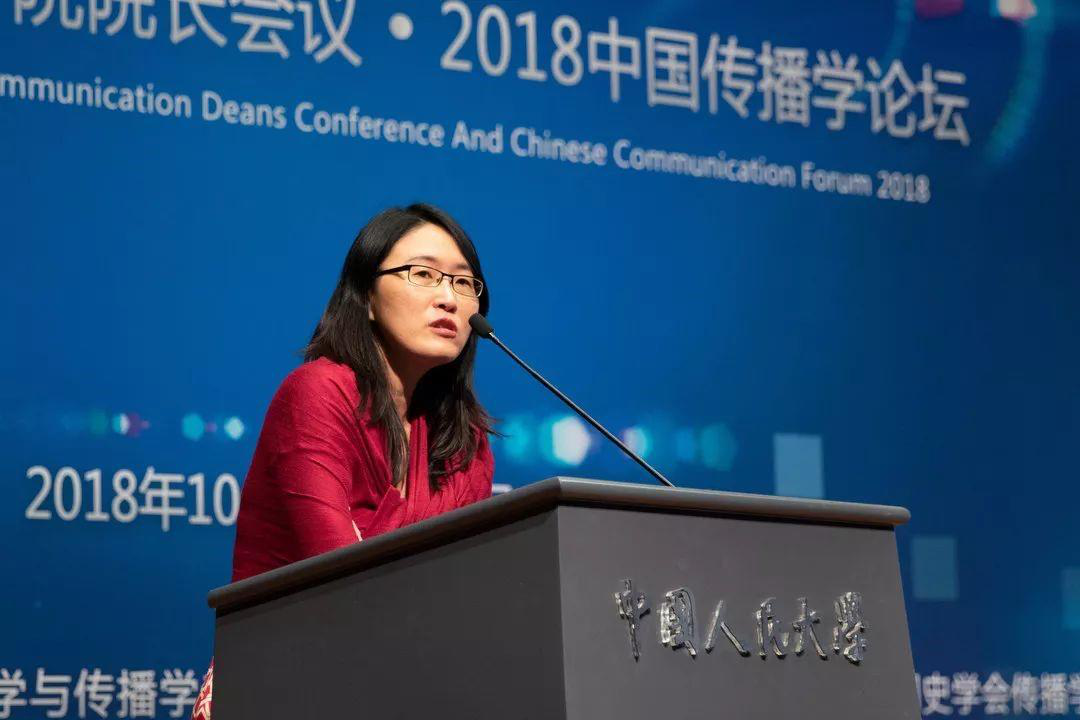
【Harnessing technologies, disrupting mindsets: Towards interdisciplinary approaches
in communication education and research】
Lim Sun Sun, Professor and Head of Humanities, Arts and Social Sciences,
Singapore University of Technology and Design
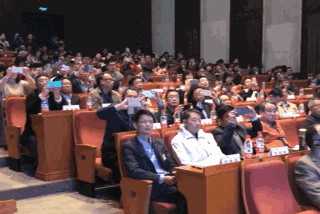
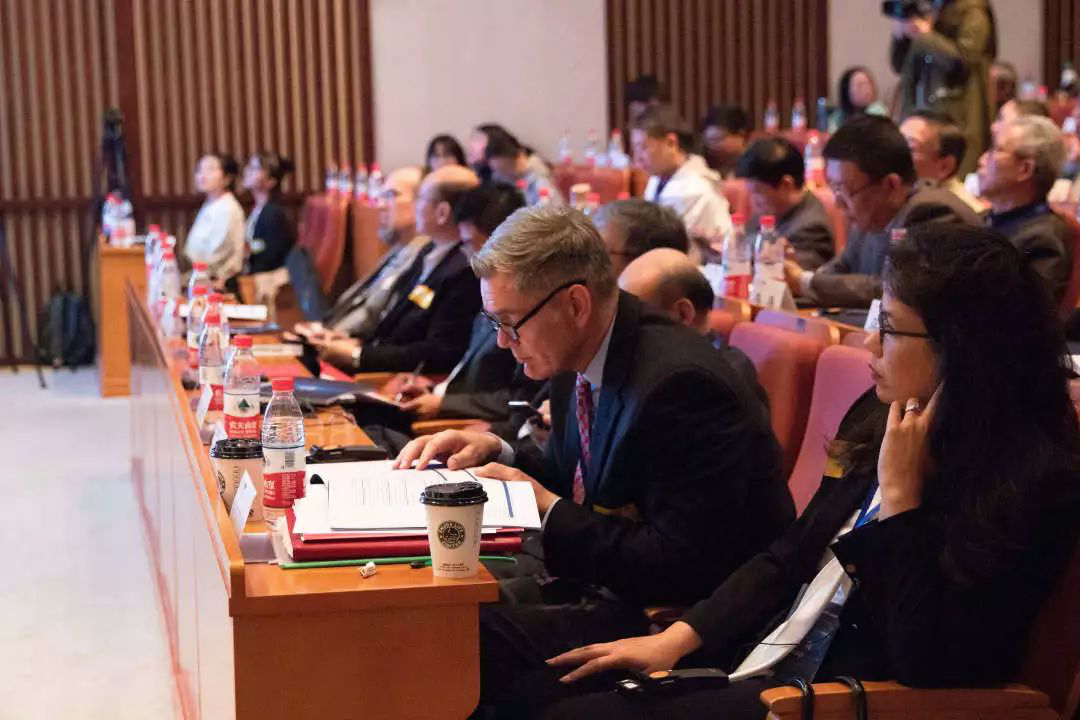
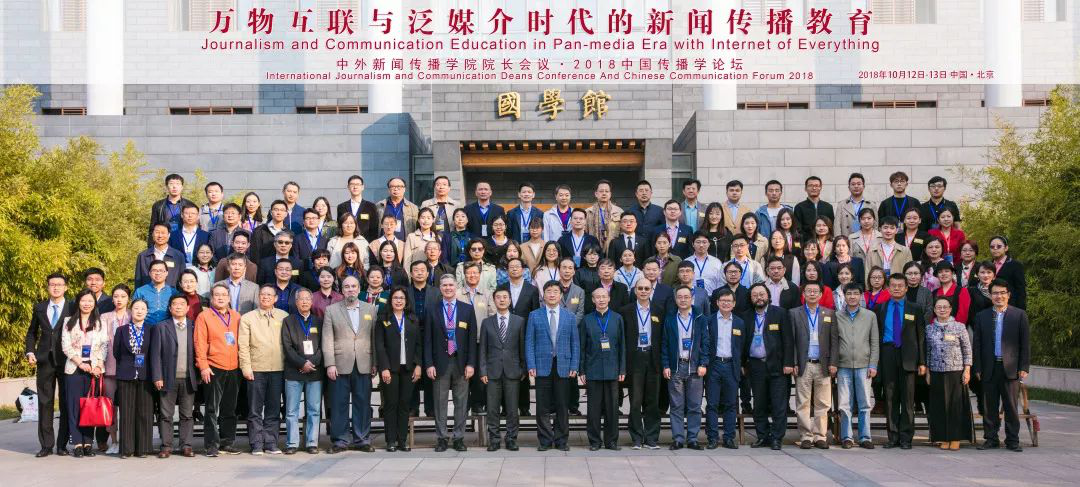
In the afternoon, 14 parallel sessions were held in the National Studies Hall, Yifu Auditorium and Mingde News Building. The topics were:
Watching and Reconstruction of News Education
Media integration and educational innovation
Exploring the Experience of Communication Teaching Reform
New Media Ethics Norms and Communication Education Adaptation
National Image and Intercultural Communication Research
Research on Network Public Opinion Communication
Advertising and Cultural Communication Studies
Empirical Research on the Effect of New Media Communication
Media fusion and urban communication
Research on the History of Communication Theory and Communication Thought
Media Literacy and Media Regulation Research
Research on the Spread of Socialist Thoughts with Chinese Characteristics
A Critical Study of Media Economics and Communication Political Economy
History of Chinese contemporary journalism
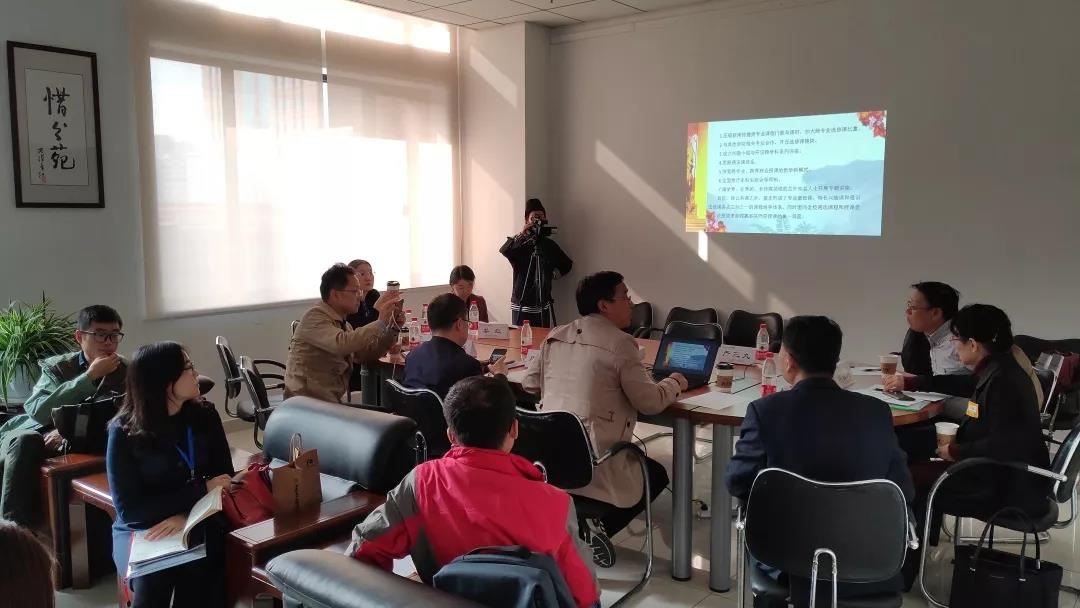
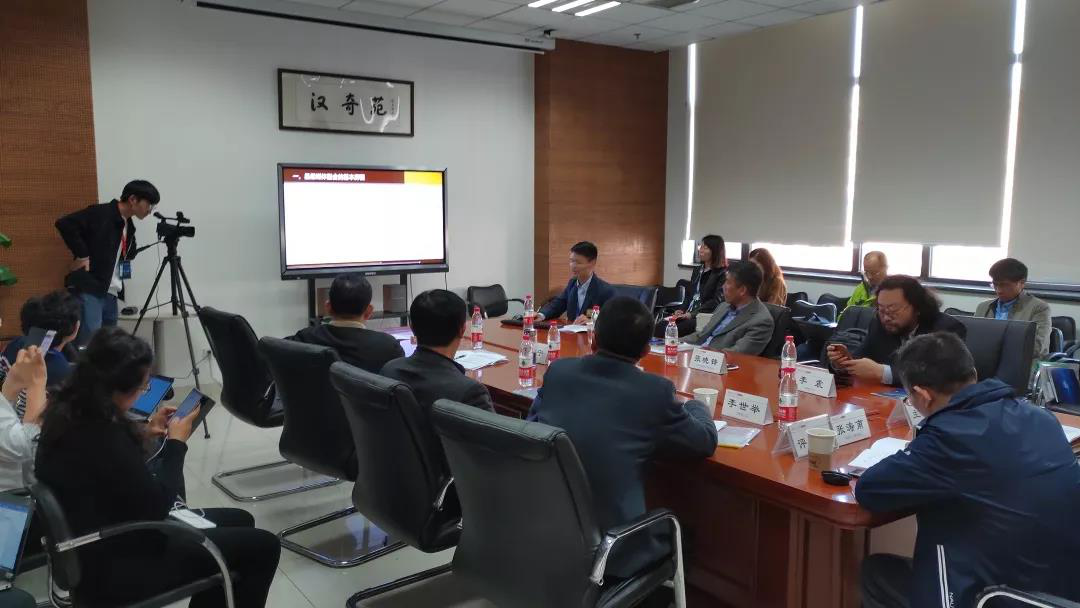
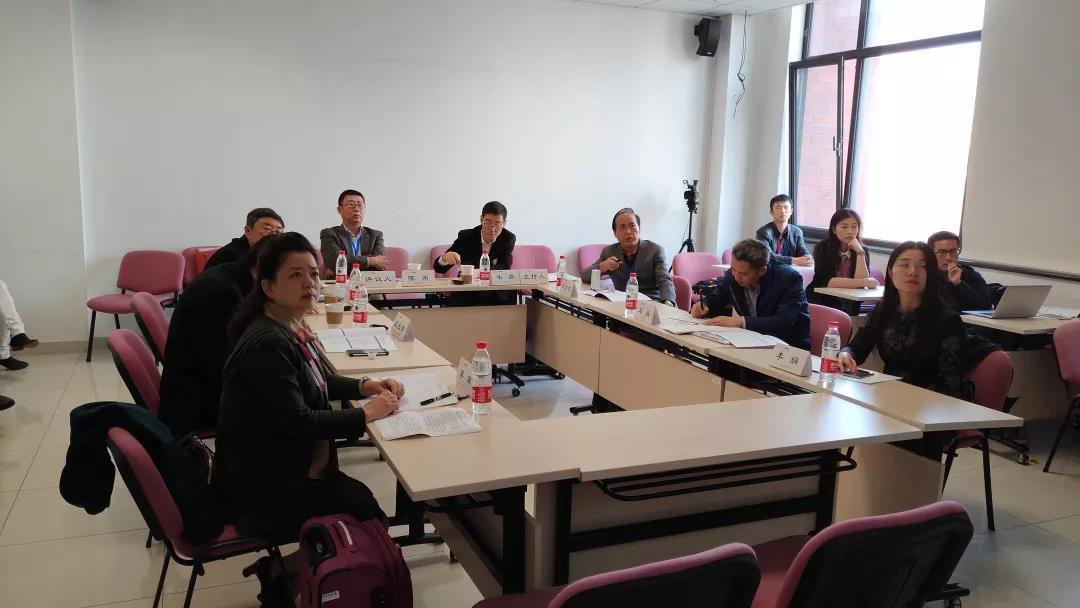
Parallel sessions
The closing ceremony of the conference was held in the studio of School of Journalism and Communication, Renmin University of China, and presided over by Professor Hu Baijing.
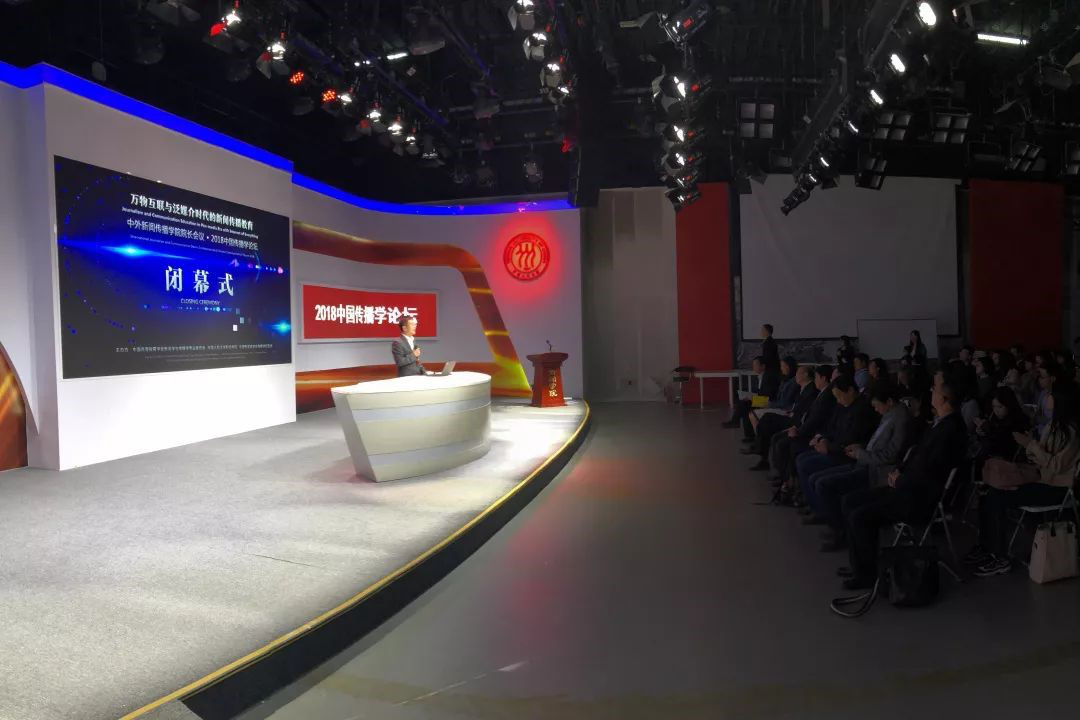
Closing Ceremony
Text / White Qiao Wei
Photo / Yang Lan, Wang Jiamin, Xu Chenyu, Wuyi Lane
GIF/Wuyi Lane
Editor / TianTian Xiang



